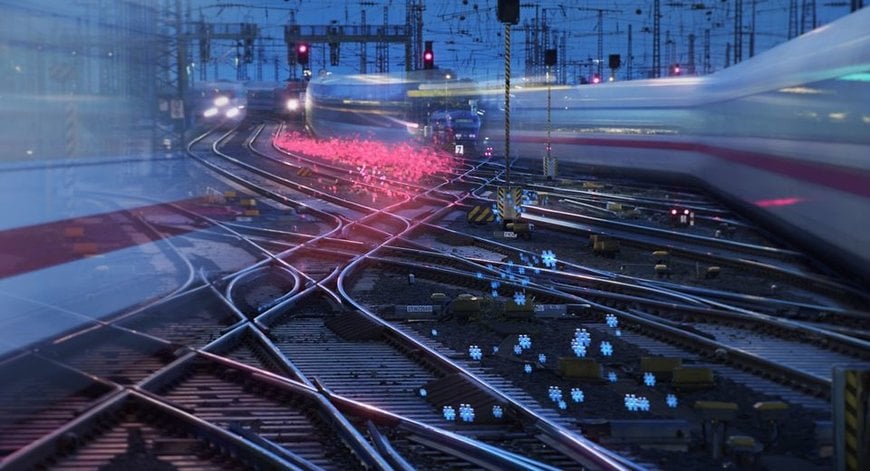www.magazine-industry-usa.com
30
'21
Written on Modified on
Artifical Intelligence at DB
Trains, switches and escalators with smarts

The German Government wants to make Germany to a leading location for AI with a national strategy for Artificial Intelligence (AI). Machine learning algorithms are performing well on the stock market and maintenance depots are becoming smart. Artificial intelligence is here, and in a big way. Methods based on data analysis in particular have already taken over banking and healthcare, two sectors that are data driven by nature. Now data analysis is making its way into traditional industries, such as manufacturing and logistics.
The mobility sector in particular has much to gain from AI. People want predictability and reliability when planning how to get from A to B. And so do industrial customers when organizing transport and logistics for their cargo. AI might be the best tool we've ever had: for efficient and transparent processes, for increased quality and capacity in rail operations, for better customer service, and for the entire mobility system, which is poised to become more flexible than ever before thanks to AI.
Artificial intelligence (AI) involves more than automating processes. True artificial intelligence refers to systems that are able to learn, evolve and develop their own solutions independently. The development of artificial neural networks and machines and deep learning has received a lot of attention in recent years. And the ability to use true AI isn't something that's a long way off at DB either. In fact, it's already being tested. Three examples of this are SEMMI, AIM and Vsion.ai, solutions developed by employees at DB Systel.
SEMMI
SEMMI stands for "Socio-Empathetic Human-Machine Interaction". SEMMI gets its knowledge from DB developers. In future, the digital assistant will be available for use by customer service not only as a robot head, but also as a chatbot or digital avatar.
FRAnny was created in cooperation with Fraport AG. The robot head answers passengers' questions on connecting flights, gates and facilities at Frankfurt airport. FRAnny was at the service of passengers at Germany's largest airport during a multi-week trial in spring 2019. In early June, SEMMI, FRAnny's railroad station counterpart, was gone into action in the travel center at Berlin's main railroad station. We have also exported this DB development to Japan, the number 1 country for robots. At Tokyo railroad station, we had trialling the service together with Japanese rail operator JR East.
AIM: using artificial intelligence for early fault detection
Acoustic Infrastructure Monitoring, or "AIM," is an AI-based self-learning solution. It uses microphones that pick up airborne sound and sensors that detect structure-borne sound to identify acoustic irregularities coming from mechanical equipment and reports these irregularities before a fault actually occurs. AIM is being tested on around a dozen escalators in Germany, including at Dusseldorf Main and in Hamburg. It enables predictive maintenance, which keeps escalators in service and maintains traveler accessibility and convenience at stations.
Vsion.ai: intelligence from images
Vsion.ai is a solution that uses AI to automatically analyze and evaluate images and videos, for example of platforms. The information it provides can then be used to make day-to-day decisions, such as whether snow needs to be cleared from a platform. The first field test successfully used self-training algorithms as smart weather stations at select train stations. Vsion.ai has since been rolled out at 22 stations in central Germany. The smart weather stations have proven especially beneficial at smaller stations in rural areas in particular. These stations do not have employees on site and are more difficult to reach.
Vsion.ai is a versatile solution that provides reliable and precise information about the condition of vehicles and railroad installations, such as information about any graffiti it detects, for example.
www.deutschebahn.com

